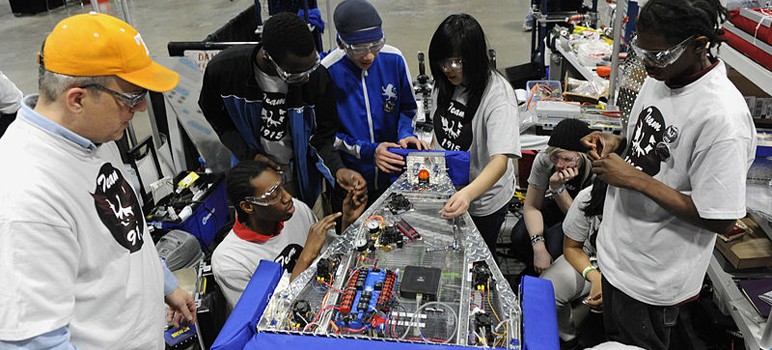Last week I attended a meeting at the invitation of an alternative education teacher. The one on one was another wake-up call for me as a county education trustee. The teacher asserted that public education must veer off its current path and boldly teach middle and high school students technical skills that provide pathways to steady middle-class careers.
Why have we not placed more emphasis on Career Technical Education (CTE)? It’s not an easy question to answer.
STEM (Science, Technology, Engineering and Math), A-G college admission requirements and four-year college degrees have been the focus of most educators over the last few decades. There has been a persistent belief that only low performing and high-risk students end up in this CTE/ Vocational pathways to career and not college.
However, as I researched information for this column, I found what appears to be a burgeoning cacophony of voices, both statewide and nationally. "We've done a disservice in this country by suggesting that there's only one path to success, which is to get a bachelor's degree", says Mark Edwards, of Opportunity Nation.
Michael Bloomberg, former New York mayor and founder of financial data and news services, posits that technology has made it so middle-class professions don't pay like they used to. "In law firms now you hit a button and get research,” Bloomberg said. “It used to be law clerks looking through books.”
Many countries—such as Finland, Germany, Canada and Japan—have a more effective view on the multiple career pathways to the middle class. No stigma is attached to students who prepare for careers in carpentry, plumbing, electrical, agriculture, food preparation, nursing—a panoply of careers that provide middle-class incomes that don’t always require a four-year degree. These countries believe that going through apprenticeships in no way prevents students from eventually gaining a college degree.
At a Super Bowl party at my home, a contractor and retired high school principal, both good friends, were having this discussion and agreed that now more than ever we need more apprentice-style programs in our high schools. Countries that seriously fund CTE have lower youth unemployment than the US.
Our leaders are beginning to catch on. President Obama has been encouraging more rigorous job training in high school and college. In federal budget proposals released Monday, Obama seeks $200 million for a career and technical education initiative that advances job training, including work-based learning and flexible schedules.
Gov. Jerry Brown, in his 2015-16 budget, proposes an additional $250 million each year, for three years, should go toward a CTE incentive grant program that will require dollar for dollar matching funds from a school district, county office of education or charter school. Michael Kirst, president of the State Board of Education, has said the governor's proposal represents a "new vision" for moving out of the K-12 box while enhancing regional collaboration with local agencies.
County Superintendent Jon Gundry also believes in the importance of teaching 21st century skills in our classrooms. As Pasadena's superintendent, he ensured that every teacher was trained in design-based Education. The SCCOE's website, under the Education Services Branch, has a link to a video of local high school programs offering high quality CTE programs.
The teacher who I met with last week believes that the SCCOE alternative education students in juvenile hall, ranches and community schools should be exposed to a wide variety of career pathways through advanced CTE programs. I agree, and I will pursue an increased discussion about funding opportunities coming our way with new federal and state dollars.


Bravo!
Hope to see more like the The San Jose Conservation Corps http://www.sjcccharterschool.org/ too. Vocational training, outreach to professionals & community volunteers to tutor & mentor students plus onsite day care. Found it very rewarding to help.
Disappointing that SCCOE’s site fails to list similar volunteer tutoring opportunities. Evidently SCCOE officials believe school salad bars are more important than education.